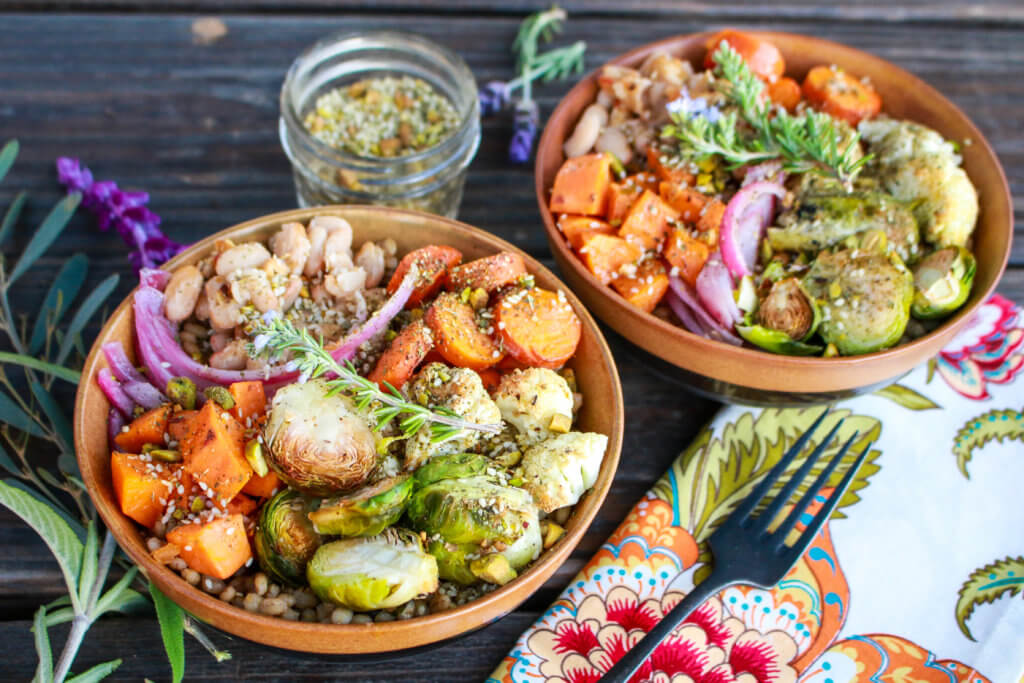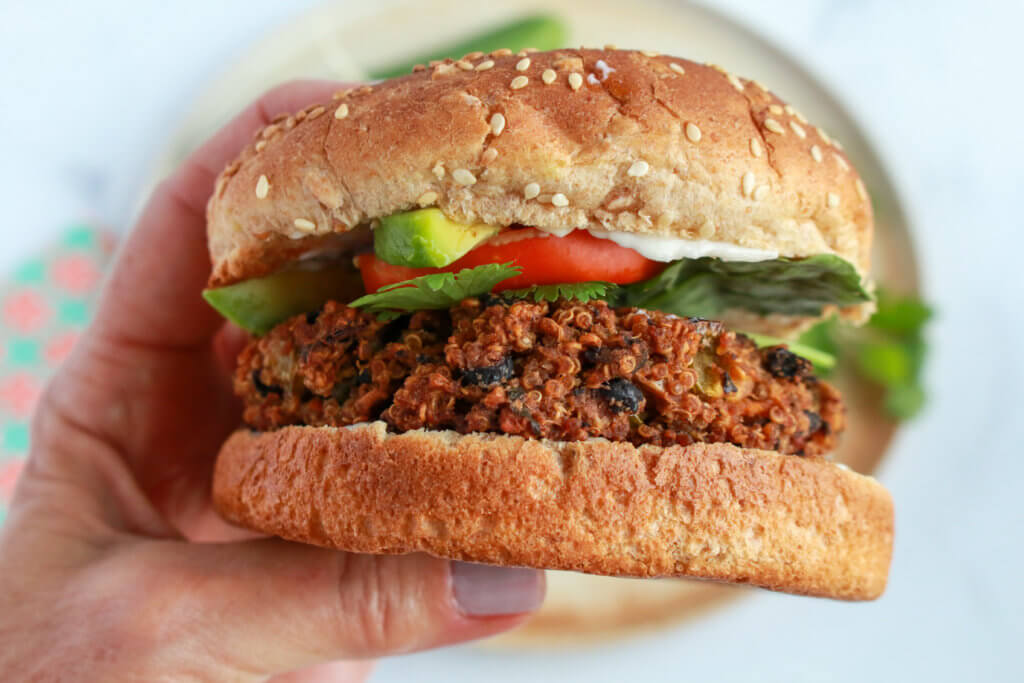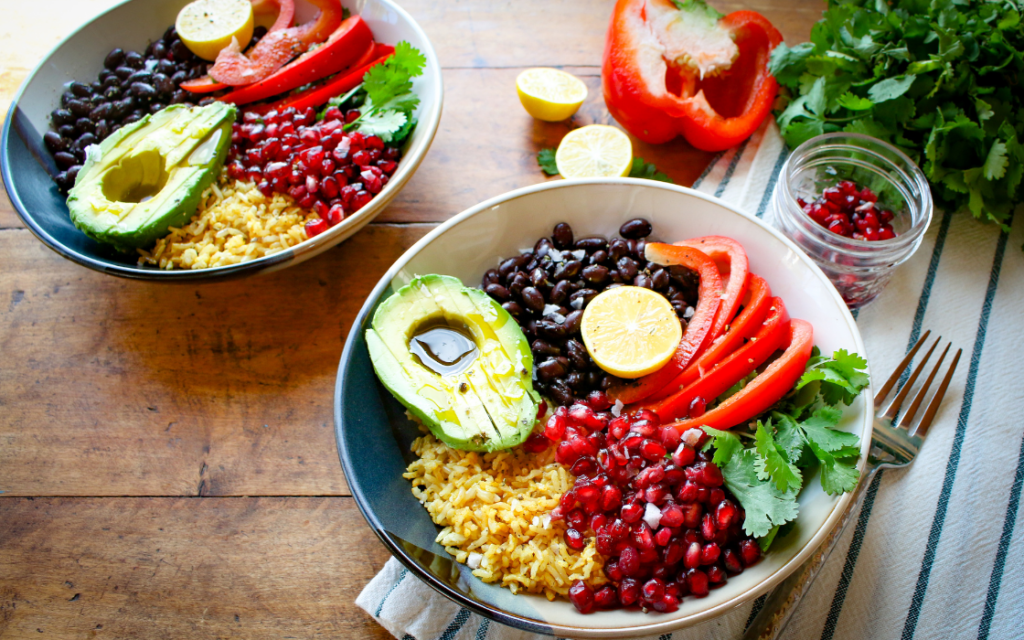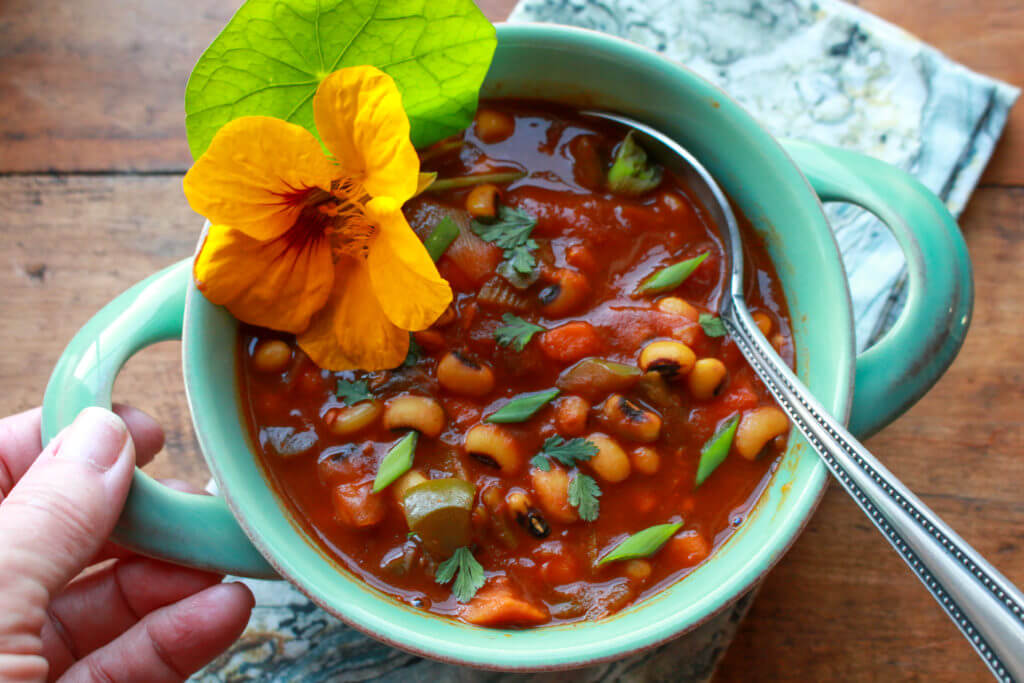
Wondering whether a vegan flexitarian meal plan is right for you? Learn how a more flexitarian vegan diet might offer health and sustainability benefits as I answer your top questions on flexi-vegan diets.
You’ve probably heard the news that a more plant-based diet is healthful for you and the planet, but can you still gain benefits from eating a more flexible vegan diet, also known as a flexitarian meal plan? What if you only want to eat a vegan diet most of the time? Do you have to focus on going vegan exclusively to gain all of those benefits? I get so many questions on the health benefits of more flexitarian, semi-vegetarian, and semi-vegan diet patterns. Indeed, my philosophy is that all of these eating patterns have rewards, as long as you get on the plant-based bandwagon and start moving more to plants! I’m answering your top questions on the benefits of a more flexitarian vegan diet and how to make the most of your eating style today.
Watch my Instagram video on the benefits of flexi-vegan diets.

Question: Is there a health benefit to eating a part-time vegan diet or flexitarian meal plan?
Answer:
Yes, there are benefits for eating a part-time or “flexi-vegan” diet, especially if it is in comparison to a typical American, meat-heavy diet. The definition of a vegan diet is one that excludes all animal foods, including animal flesh, dairy products, eggs, and honey. That may sound pretty straight forward, but it can get really complicated. Some vegans prefer not to eat veggie burgers cooked on the same grill as burgers, some don’t mind. Some vegans make sure the sugar they buy has not been processed with bone char, others don’t worry about it. And some vegans live a more flexitarian lifestyle at times. I know vegans that include dairy and eggs when they travel, for the ease of traveling and eating out. I know vegans who occasionally eat animal foods for very special occasions. I have met all sorts of vegans in my profession as a plant-based dietitian! And I think the important thing is to choose a lifestyle that is right for you, and meets your own personal goals. I don’t think it’s right for anyone to make judgments on someone else’s dietary choices.

You can see that a more compassionate view on veganism, remembering that the reason people are attracted to this lifestyle is to reduce the suffering of animals in agriculture and for health and environmental benefits, and keeping that compassion in mind when making decisions about what to eat is an important lens through which to view your food choices. Some vegans are not full time vegans, because they have made the choice to take a moderate step towards this lifestyle. This sort of lifestyle decision (a flexitarian meal plan) is growing in popularity, with many flexitarians and pescatarians living nearly vegan lifestyles with just a few additions to their diets.
Hollywood has been very supportive of the vegan lifestyle for some time now. Many celebrities are vegan, and it seems the trend is growing. For example, many of the cast in the movie Avengers Infinity War went vegan to prepare physically for the role. And Megan Markle has spoken out on her diet preference leaning towards veganism.

Indeed, we know that there are vegan diet benefits, as well as health and sustainability benefits for flexitarian and semi-vegan diets. Research consistently shows that plant-based diets offer benefits. The Adventist Health Studies 2 found overall a linear effect with plant-based diets—the more plant-based they were, generally the more health benefits, with vegans having the greatest reduction in disease risk overall, followed by vegetarians, pescatarians, and semi-vegetarians (flexitarians). Clearly, you can gain benefits by eating a nearly vegan diet. The reason why? You are increasing your intake of whole plant foods: beans, lentils, tofu, oats, quinoa, berries, green leafies, almonds, flaxseeds, and more.
So what is a plant based diet really? The definition of a plant-based diet is one that focuses primarily on plants. However, today a plant-based diet has also been referred to as a vegan diet. So, there is a bit of confusion among the terminology. I prefer the term plant-based diet to vegan, however it does allow for some confusion in interpretation.

If you are thinking about trying a more plant-based diet as a gentle approach to vegan eating, try making some gradual changes. Start with Meatless Monday—the idea of going completely plant-based one day a week. If you feel good about it, add some additional plant-based days to your menu. Another tip is to start your meal planning around plants. Instead of focusing on the animal food (i.e., a steak or grilled chicken breast) plan your meals around the plants, such as curried lentils with quinoa and a tomato soup. You can also use meat as a seasoning—don’t eat large pieces of meat at the center of your plate—slice up a few slivers of fish into your stir-fry for the whole family—instead you are boosting that meal with plants, and using a small amount of meat. Start thinking differently about your plate—make plants the star of them, rather than just an afterthought.

For more information on eating a plant-based diet check out these blogs:
Eating Plant-Based on the Cheap
How to Go from Vegetarian to Vegan
Eating a Plant-Based and Gluten-Free Diet with Confidence
Check out other nutrition questions Sharon is answering at The Plant-Powered Dietitian:
How to Cook All Greens
What Are the Health Benefits and Risks for Nightshades?
Should I Try a Keto Diet?
About Ask Sharon
As part of my program “Ask Sharon”, I am answering the top question of the month submitted through my blog, Facebook, Twitter or Instagram to answer here. You can even win a prize! Don’t forget to submit your burning nutrition question this month via my blog, or other social media.

